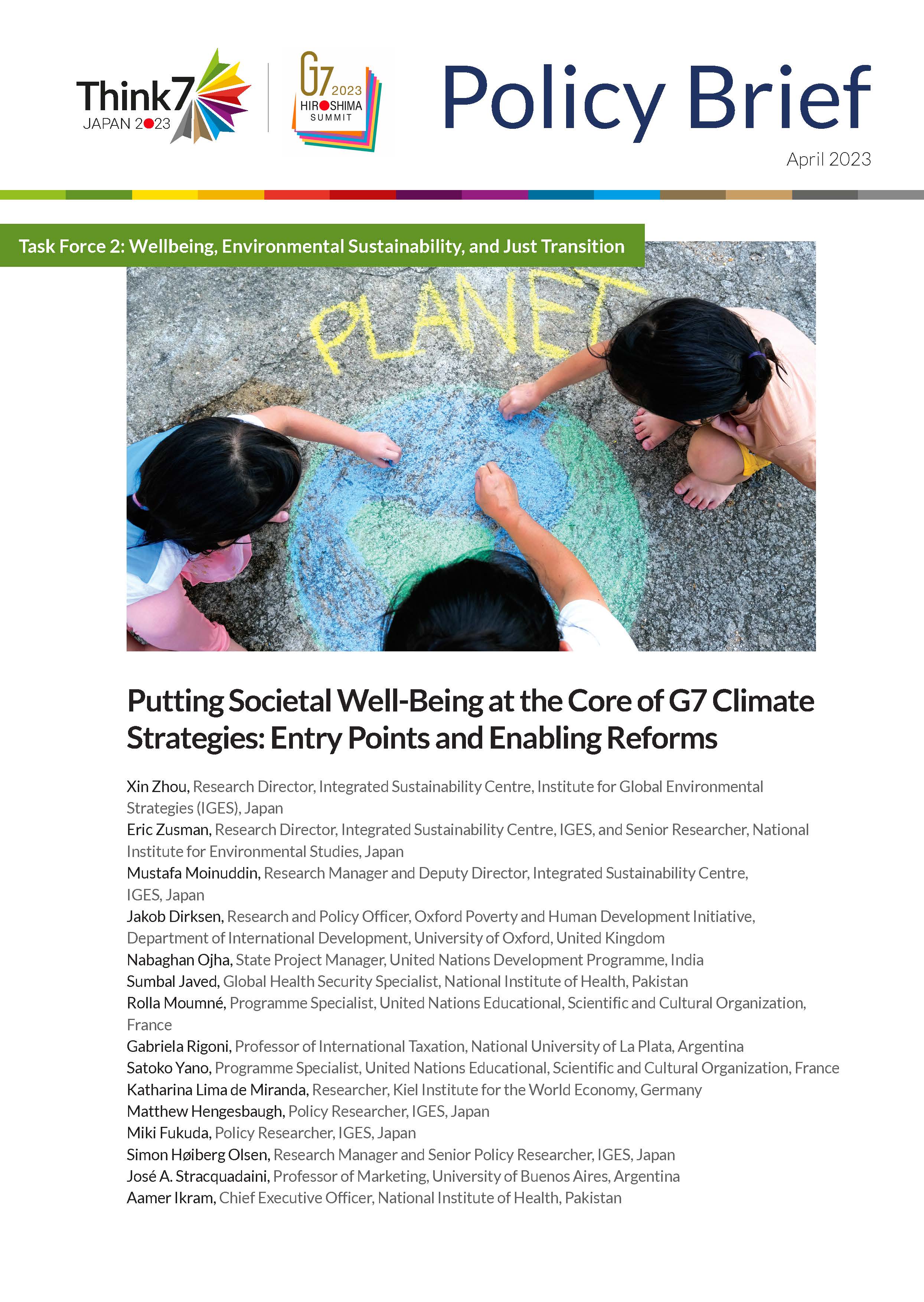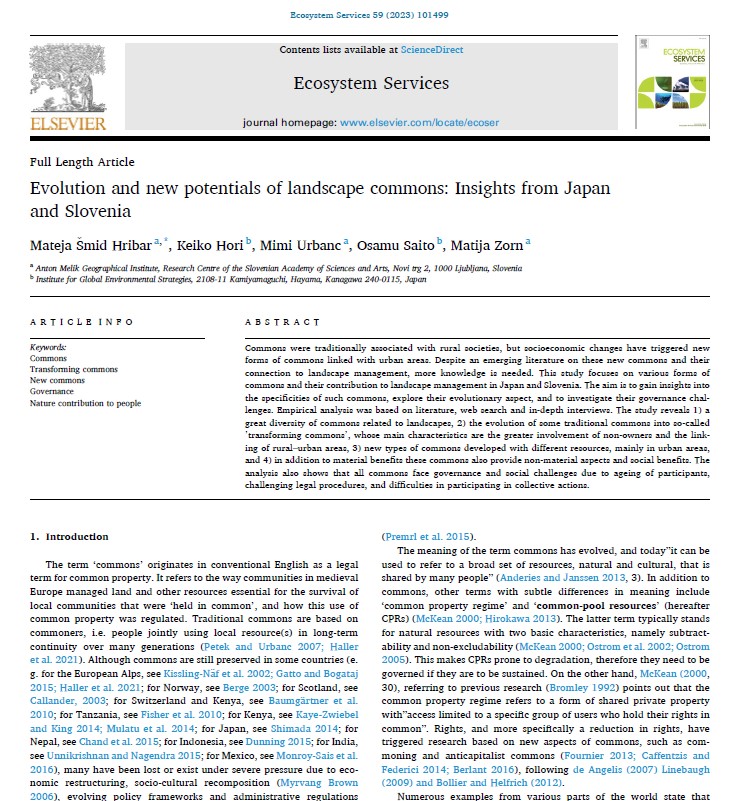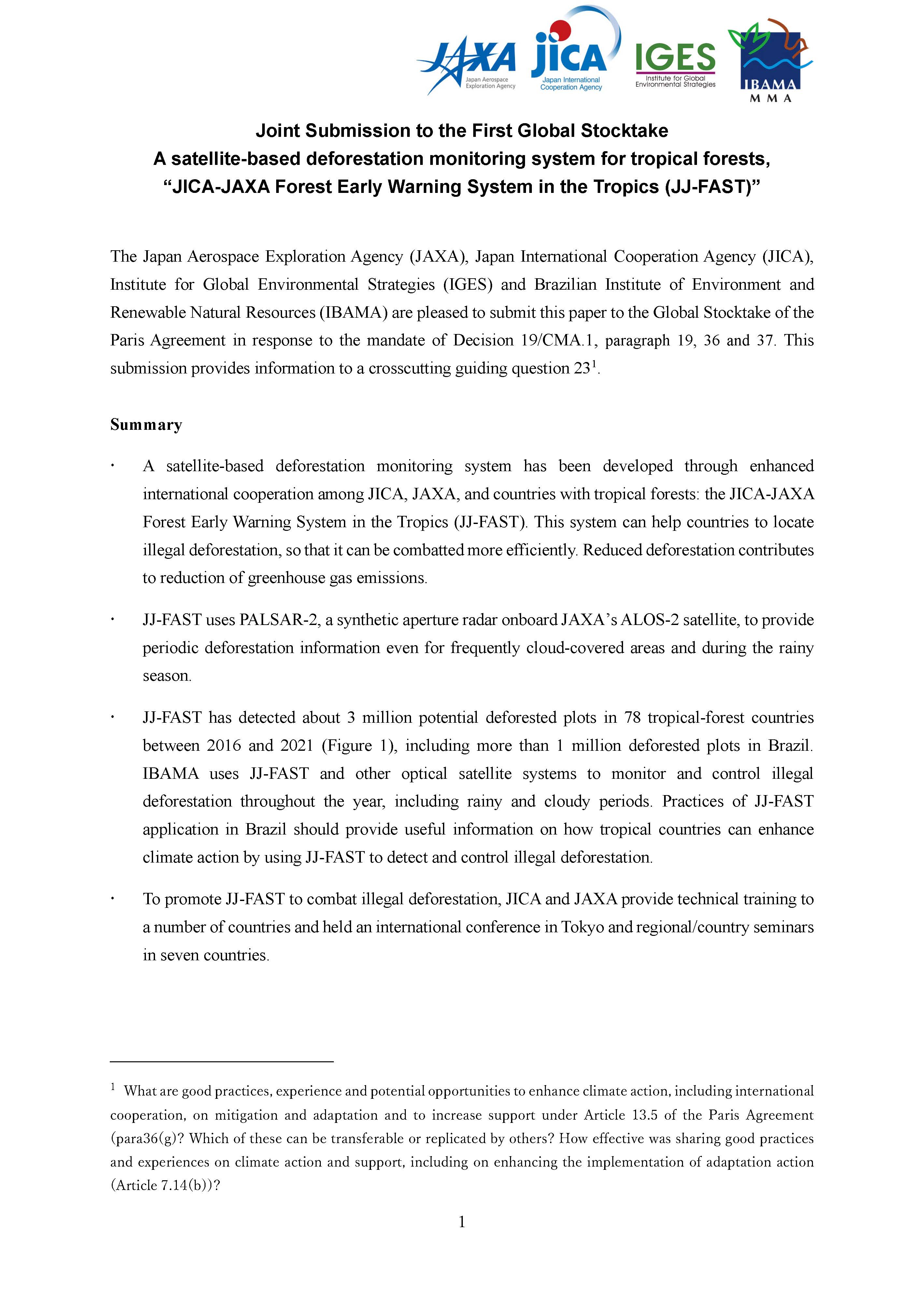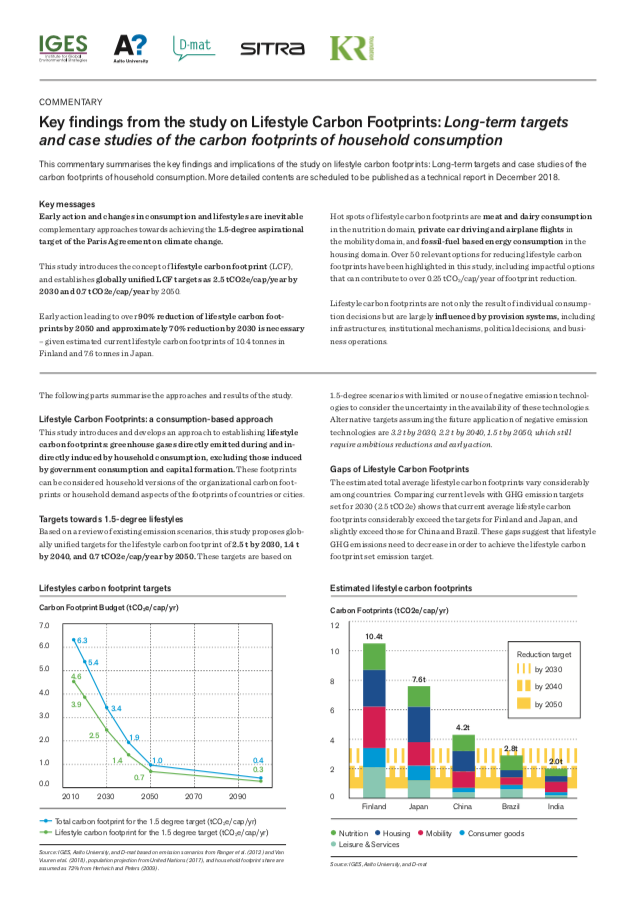T7/G7 Task Force 2 Wellbeing, Environmental Sustainability, and Just Transition Policy Brief
Integrating the Sustainable Development Goals (SDGs) into climate actions is essential for a healthy planet and people. Yet, national climate policies and international climate support programs often fail to explicitly recognize the interconnections between climate concerns and other priorities covered under the SDGs. This failure can leave key...






